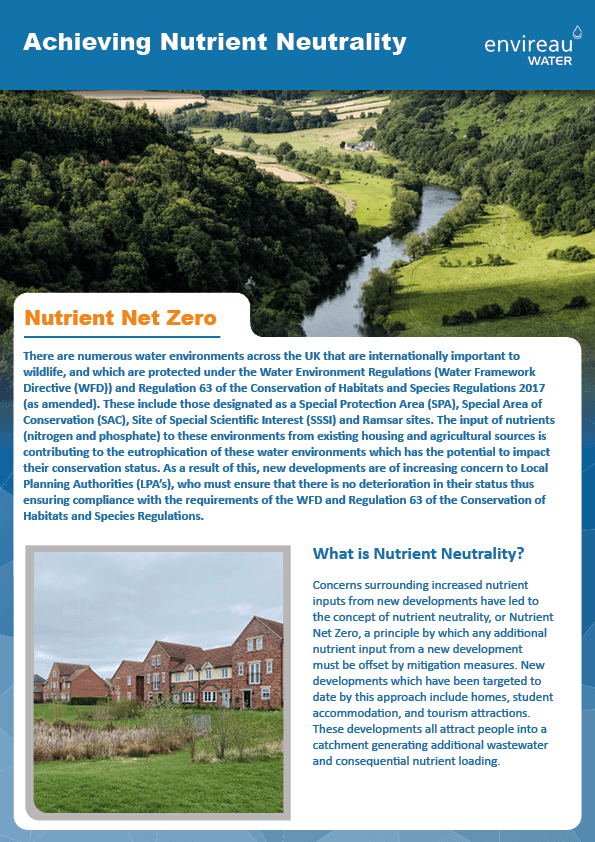Achieving Nutrient Neutrality
Have you heard the term nutrient neutrality? In short, it describes the process of ensuring that new developments, whether that’s residential or more recently polytunnels, do not add excess nutrients such as phosphate and nitrogen to the surrounding ecosystem, especially the water environment. When this addition does occur, it can lead to eutrophication, ultimately disturbing the natural mineral levels leading to ecological degradation.
Our unique positioning, which combines our understanding of the natural water system, along with various developments and our work with agricultural clients, means we have an independent view of the concerns at hand. Where nutrient offsetting is required, our driven approach will use one person’s problem as another’s solution. For example, if excess nutrients are added due to development, offsetting may be required by altering land use from farmland to woodland. Overall, the technical solution our team provide will help to create nutrient balance in the ecosystem.
By understanding all sides of the problem, our expert team will ensure your nutrient net-zero solution will meet regulatory requirements whilst providing additional benefits. Take a read of our bulletin below to learn more about achieving nutrient neutrality.












